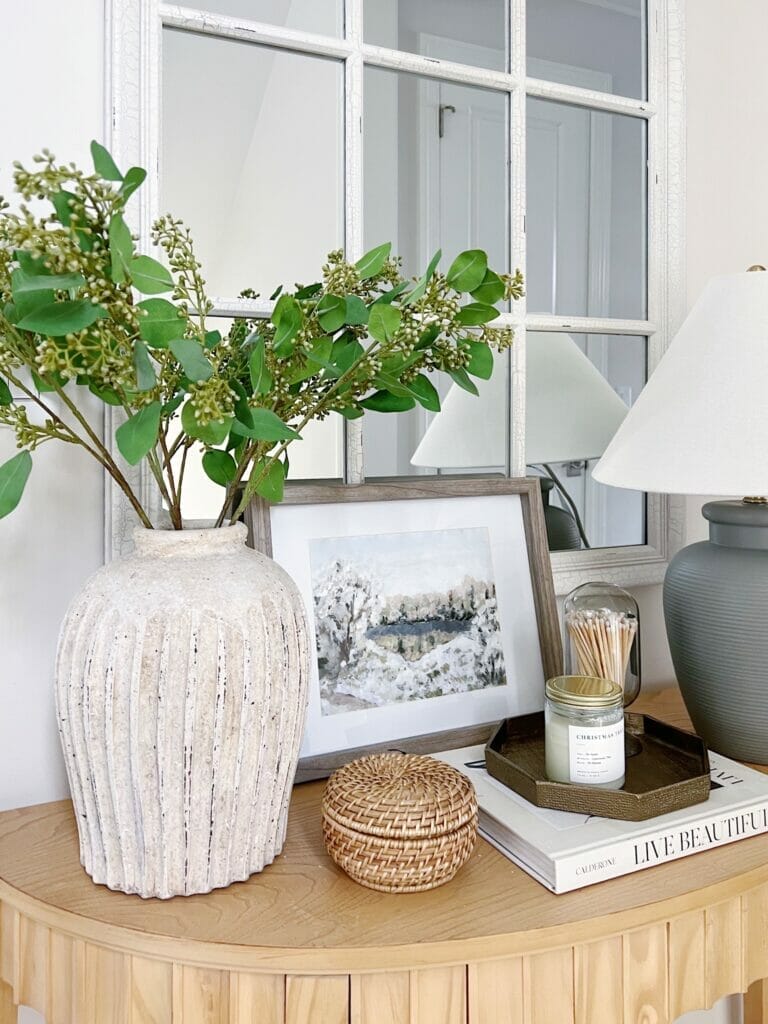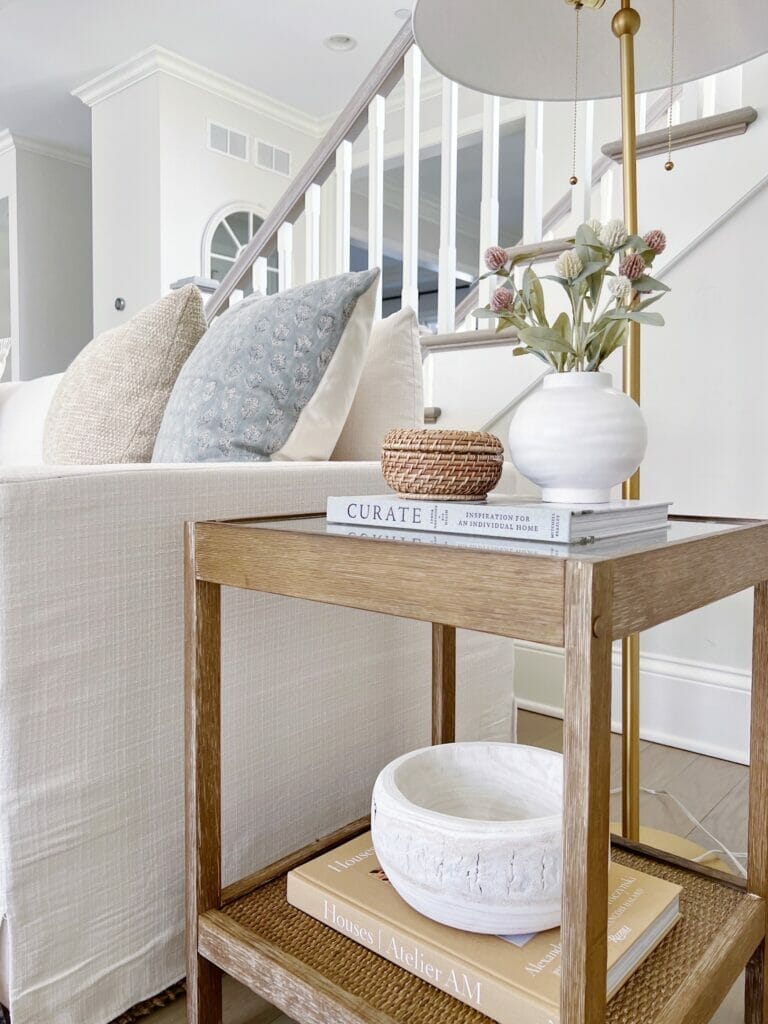Welcome to the world of living room decor! When it comes to styling our homes, every piece of furniture plays a crucial role in shaping the overall ambiance. Among these, the side table, or accent table, often gets overlooked but has the potential to transform your living room into a stylish haven. Drawing from personal experience and extensive research, this comprehensive guide will show you how to choose, decorate, and maintain side tables that not only serve a function but also resonate with your personal style.
Why Side Tables Matter in Living Room Decor
When I first moved into my apartment, I underestimated the power of a side table. Initially, I thought they were merely practical pieces for holding drinks or books. However, I soon discovered their potential as decorative elements that can tie a room together. Here’s why side tables matter:
- Functionality: They provide essential space for lighting, drinks, or personal items.
- Style Statement: Side tables can reflect your personality and enhance your room’s overall design.
- Versatility: They can be used in various rooms and serve different purposes beyond the living room.
Choosing the Right Side Table for Your Living Room

Consider Your Space
Before diving into concrete options, assess your living room’s space. Smaller rooms may benefit from compact, minimalist tables, while larger areas can accommodate more substantial designs.
Materials and Styles
When selecting a side table, consider the material and style that aligns with your decor:

| Material | Style | Pros | Cons |
|---|---|---|---|
| Wood | Traditional, Rustic | Durable, Warm Feel | Can Be Expensive |
| Metal | Industrial, Modern | Sturdy, Stylish | Can Rust Over Time |
| Glass | Contemporary | Open and Airy | Fragile and Needs Regular Cleaning |
| MDF | Affordable, Versatile | Cost-Effective | Less Durable Than Solid Wood |
Style Inspirations
Here are some popular styles you might consider:
- Scandinavian: Simple, functional, and minimalistic.
- Mid-Century Modern: Retro vibes with clean lines and organic shapes.
- Bohemian: Eclectic mix with vibrant colors and textures.
- Farmhouse: Cozy and rustic, often with distressed woods.

Decorating Your Side Table
Essential Elements of Side Table Decor
Decorating your side table involves balancing function with aesthetics. Here’s a simple formula:

- Layering: Use different heights and textures for visual interest.
- Functionality: Include items you use daily, like coasters and lighting.
- Personal Touches: Incorporate personal mementos or favorite books.
Accessorizing Your Side Table
Here are some ideas for accessorizing your side table:

- Lamps: A stylish lamp can serve as a focal point.
- Books: Stack a few of your favorite reads for an intelligent touch.
- Plants: A small potted plant can liven up the space.
- Art Pieces: Incorporate a unique sculpture or framed photo.
Example of a Beautifully Decorated Side Table
Here’s how I styled my side table to create a harmonious design:
- A modern white lamp with a textured shade.
- A stack of two colorful books.
- A small succulent in a ceramic pot.
- A framed photo from a recent trip to Paris.

Common Mistakes to Avoid When Styling Side Tables
Overcrowding
A common pitfall is overcrowding the table with too many items. Keep it simple and avoid clutter. Each piece should have a purpose.

Ignoring Height Variations
Mixing items of various heights creates visual interest. A tall lamp, a medium-sized book stack, and a small plant can create an appealing arrangement.
Neglecting Cohesion
Ensure your side table’s decor complements the overall style of your living room. Find a balance between personal touches and cohesive design.
Maintaining Your Side Table
Once you’ve styled your side table, proper maintenance is essential. Here are some quick tips based on my experience:
- Regular Cleaning: Dust the surface frequently to avoid buildup.
- Avoid Over-Saturation: If using plants, ensure the pots have good drainage to prevent water damage.
- Rotate Decor: Change accessories seasonally to keep the look fresh.
Pros and Cons of Different Side Table Types
Wooden Side Tables
Wooden side tables bring warmth but are heavy and can be more expensive.
Pros:
- Durability
- Various styles available
Cons:
- Can be heavy
- May require maintenance
Metal Side Tables
Metal tables are stylish and lightweight but can be prone to rust.
Pros:
- Stylish appearance
- Lightweight
Cons:
- Can rust
- May not suit all decor styles
Create Your Unique Side Table Decor
At the end of the day, side table decor should speak to your personality and style. Incorporate elements that reflect your interests, whether it’s through color, texture, or items of personal value. Embrace the opportunity to shape your living space into an inviting retreat.
Frequently Asked Questions (FAQs)
What is the ideal height for a side table?
The ideal height for a side table is generally 1-2 inches below the armrest of the sofa or chair it accompanies.
How many items should I put on my side table?
A good rule of thumb is to aim for three to five items, balancing functionality and aesthetics.
Can I use a side table in places other than the living room?
Absolutely! Side tables can be used in bedrooms, hallways, or even as nightstands.
How do I choose between a round or square side table?
Consider the space and existing furniture. Round tables are great for smaller spaces and can soften the look, while square tables provide a more structured, modern feel.
Conclusion
Decorating a side table can be a delightful and fulfilling task. By choosing the right materials, styles, and accessories, you can create an inviting focal point in your living room. Remember, the key is to find a balance between functionality and personal expression. I hope this guide inspires you to transform your living space with stunning side table decor!